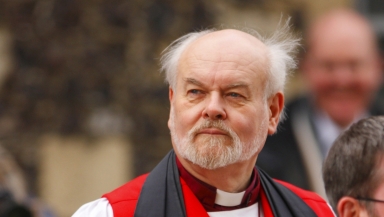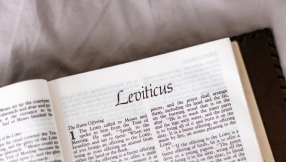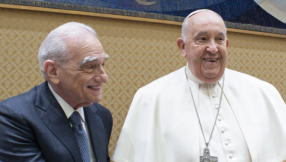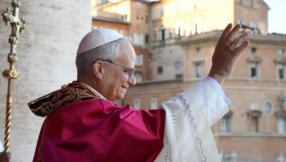
The Bishop of London has called for the Battle of Waterloo to be better understood and remembered, in order to learn from its lessons and help to shape the future.
Dr Richard Chartres said: "The past cannot be changed but we are responsible for how we remember it. What we extract and carry forward from what has gone before creates possibilities for the future or closes them off. In a sense we remember the future."
He was preaching at a service at St Paul's Cathedral, London, to mark the 200th anniverary of the Battle of Waterloo. On July 18, 1815, 180,000 men fought for more than 10 hours, with more than 35,000 horses and 500 cannon. The battle saw the final defeat of the French Emperor Napoleon by two armies, the allied forces commanded by the Duke of Wellington and the Prussians by Gebhard von Blücher.
The battle took place in Waterloo, which today is in Belgium but which was then part of the United Kingdom of the Netherlands.
The Prince of Wales and the Duchess of Cornwall were among those present at the service, along with the Prime Minister David Cameron, the Earl of Wessex, the Duke and Duchess of Gloucester and the 9th Duke of Wellington. There were also representatives of the UK's armed forces and all countries involved in the battle, and descendants of men who fought in it.
Dr Chartres referred to a survey by the National Army Museum of more than 2,000 people which showed that three in four people had little knowledge of Waterloo, believing variously that it was won by the French or that it involved Churchill or even the Harry Potter Hogwarts head teacher Dumbledore.
The Bishop outlined how the battle brought an end to 20 years of war which had devastated the European continent, but it was widely interpreted as the triumph of feudal reaction and the defeat of the ideals of the French Revolution.
The old order was restored and re-invigorated in Russia, Prussia and Austria and even in Britain the association of reform with the homicidal social engineering of the French Revolution delayed political and social change.
But Britain soon enough uncoupled herself from her aristocratic partners to assist Greece and South America in gaining freedom and embarked on a programme of domestic reform, he said.
"One of the consequences of Waterloo which did endure was a heightened a sense of Britishness.
"It became a unifying symbol of national achievement, a foundation of a century of British self-confidence. British soldiers numbered perhaps a tenth of all the men on the field but the battle was woven into the evolving narrative of British identity."













